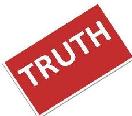
Pastor Timothy Keller in his
book, The Reason for God asks a very
interesting, if not challenging question.
It is this. “How can we use our
time’s standard of ‘progressive’ as the plumbline by which we decide which
parts of the Bible are valid and which are not?”*
Of course one might broaden the
question out and ask the same of one’s notions of truth, progress, and a whole host
of other assumptions. Pastor Keller goes
on to make the observation that just as people in our day look back and view
the past as primitive, one day people will look back at us with the same label. Yet one must ask, “Is this really so?” and
“Are we really more advanced that those of years ago?”
The
Benchmark of Progress

This notion that today is a
legitimate “plumbline of progress” is a part of a greater question.
Is our benchmark for deciding progress based upon
accurate truth or biased assumption?
For
example one might offer the speed with which knowledge is expanding as evidence
that man is no longer primitive and in fact advanced over what he was in past
centuries.
Or perhaps offer that Western
man is living longer as some mark of progress.
Again one does well to ask the
question. Are these legitimate marks of man’s
progress? If so, then they are accurate
truth. If not they are evidence that
once again a flawed and biased assumption has been bandied about to the degree
that it is accepted as truth.
Assumptions
about Intelligence

Look for example at man’s
intelligence.
It is not uncommon for
people to conclude that today’s man is more intelligent and accomplished than
mankind of five, six, or even then thousands of years ago.
It is not uncommon to hear people refer to
the Hebrews of 5,000 years ago as primitive goat herders.
The assumption is that man has
greater intelligence than ever before (Darwinian Theory). But, is that really true? The only way to test the validity of the
theory is to read the writings of the time in the Jewish Scriptures and as well
consult such archeological sources as are possible. Such reveals a far different picture.
The
Genesis Account
Do you know anyone who is
capable of giving a name to every one of the 280 animals in the Species: Vertebrate,
Class: Mammalian Masupialia? Yet the
first man of recorded history did so and more (Genesis 2:19-20)! One may argue that he was unique but there
again one assumption is as valid as the next and really there is no way to know
beyond the Biblical text. Of course
there are those who when they find some aspect or another of the Biblical text
inconvenient to their truth paradigm spare no intellectual and academic effort
to refute the Scriptures.
The
Egyptian Account

While the sons of Jacob (Israel)
and their families were most certainly in the livestock business, at the outset
of the 400 years they were in the Egyptian culture such did not remain so for
many.
Archeologically in the vicinity of
the Valley of the Kings there are discoveries that suggest it was Jewish
artisans who carried on much of the construction in general and as well much of
the aesthetic work on the Tombs.
This discovery is in its
infancy. As more and more is discovered
there is a strong possibility that more and more will be discovered that
validates the initial discoveries.
However, when one reads of the construction of the Wilderness Tabernacle
another picture is present. Yes, there
was the Divine giftedness present in those doing the actual work. As well, there is a sense of those doing the
work having some background in the trades.
The
Land of Israel
More and more archeology is
validating the narrative of the Scriptures and in those narratives one finds that
the Kingdoms of David and of Solomon are rather advanced. Though they existed some 3,000 year ago, they
included written languages (Hebrew), international trade and commerce, systems
for taxation, military organizations, judicial systems, and much more. Bear in mind that this organization was in
place less than 400 years after the Egyptian experience.
The
Babylonian Experience
The Babylonian Empire was at the
leading edge of progress in its day with a road system and a mail system that
transited the Empire. The government was
advanced and in need of skilled civil servants to see to the administration of
same. It was not uncommon that such were
found in and among the conquered peoples.
So it was in 605 BCE, when
Babylon conquered Jerusalem, Nebuchadnezzar the ruler over Babylon brought four
Hebrew young me to be trained for court duties.
Such were anything but “goat herders” as is evidenced by the rise in
power of one man, Daniel. He was so well
trained that when the Persians conquered Babylon he was retained in the royal
court.
The
Jewish Writings

Should one take the time to
consider just when the Books found in the Jewish Bible were written and then
consider the vocabulary, the text, the various constructions involved in the
writing of the day there is a very legitimate conclusion to be drawn?
Such a study will show that the writers were
not uneducated people of the fields butt a cross section of Jewish
culture.
All of these men were men of
understanding, education, and skill in reading, writing, culture, and
communication. Such at the very least
should begin the process of delegitimizing the notion that is most popular
among many that present day man has progressed well beyond his predecessors.
Questionable
Assumptions
In today’s culture assisted as
one is with technology it is easy to miss the point that those of by gone days
conducted the affairs of their lives right on up to those of state without such
communication and travel aids as are present today. The question of how they did so with capacities
much lower than today’s man is certainly intriguing or is it?
For the reasons provided, it
seems then that the assumption that today’s man had advanced in intellect and
mental capacity beyond that of his forbearers must be called into question. More
to follow in a subsequent posting.
________________
*Although it would appear that I take issue with Pastor Keller, may I say that this is a most excellent book that every Christian and Atheist should read. Christians to bolster their faith, Atheists to challenge theirs.

 It is as if one is caught in a vortex of
understanding and then while being carried about in that vortex claims all reality outside of that vortex
does not exist. That is the freedom some loudly proclaim. However, the reality is that such freedom is not freedom at all but bondage.
It is as if one is caught in a vortex of
understanding and then while being carried about in that vortex claims all reality outside of that vortex
does not exist. That is the freedom some loudly proclaim. However, the reality is that such freedom is not freedom at all but bondage.  Most often when that trail leads
into the arena of faith and in particular Christian faith, one's preconceived prejudices against Christian faith will block one's way. Such a person can be carried along by the
trends and current of their prejudices without even knowing it.
Most often when that trail leads
into the arena of faith and in particular Christian faith, one's preconceived prejudices against Christian faith will block one's way. Such a person can be carried along by the
trends and current of their prejudices without even knowing it.  In doing so such a person purposefully turns a blind eye to that which is not in in one's your
knowledge-comfort zone--even going on the attack. Such is not freedom
but an enslavement to one's own limited understanding. These are the
choices one has the freedom to make however one has no control
over the outcomes of those choices.
In doing so such a person purposefully turns a blind eye to that which is not in in one's your
knowledge-comfort zone--even going on the attack. Such is not freedom
but an enslavement to one's own limited understanding. These are the
choices one has the freedom to make however one has no control
over the outcomes of those choices.















